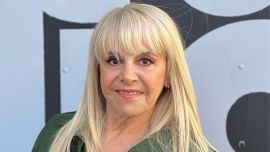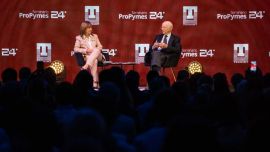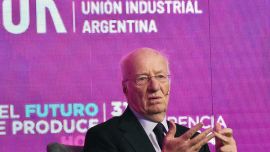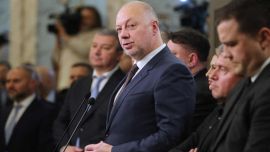Argentina’s inflation sped up more than expected in January as price controls proved ineffective, further complicating the government’s strategy ahead of presidential elections later this year.
Consumer prices rose 98.8 percent from a year earlier, more than the 98.6 percent median forecast from economists in a Bloomberg survey. Prices gained six percent from December, the second straight month of faster increases, according to government data published Tuesday.
Higher costs of recreation, housing and communication propelled increases in January on a monthly basis. Rises in food prices, the largest weighted category in the index, were also above headline inflation.
“Inflation remains hot and widespread, and current policy measures — low real interest rates, price controls and an overvalued currency — aren’t working to tame price pressures. We expect inflation to hover around 100 percent through most of the year," said Adriana Dupita, Brazil and Argentina economist for Bloomberg.
While inflation is a perennial problem in Argentina, it’s now ascended to one of the world’s highest rates as the leftist government of President Alberto Fernández struggles to build a credible economic plan. With presidential elections in October, years of printing money to finance government spending are proving particularly costly on top of higher energy prices following Russia’s invasion of Ukraine.
Fernández’s unconventional strategy to contain inflation — a mix of price freezes, currency controls, multiple exchange rates and high borrowing costs — has failed to cool cost-of-living increases and future expectations. Economists forecast annual inflation to finish this year at 98 percent.
On Monday, Economy Minister Sergio Massa rolled out new price controls on beef and said he’s preparing more measures to reel in the rising cost of living. Fernández is hosting an election roundtable with leaders from his coalition on Thursday to define their campaign strategy.
related news
by Patrick Gillespie, Bloomberg



















Comments